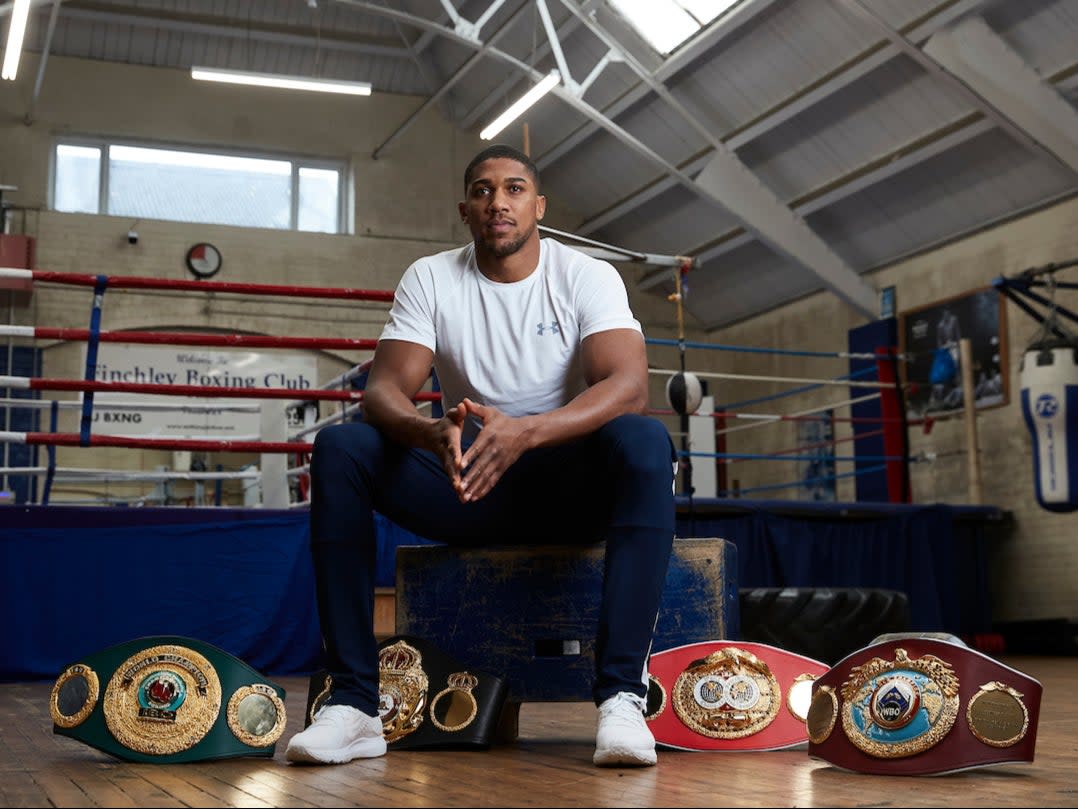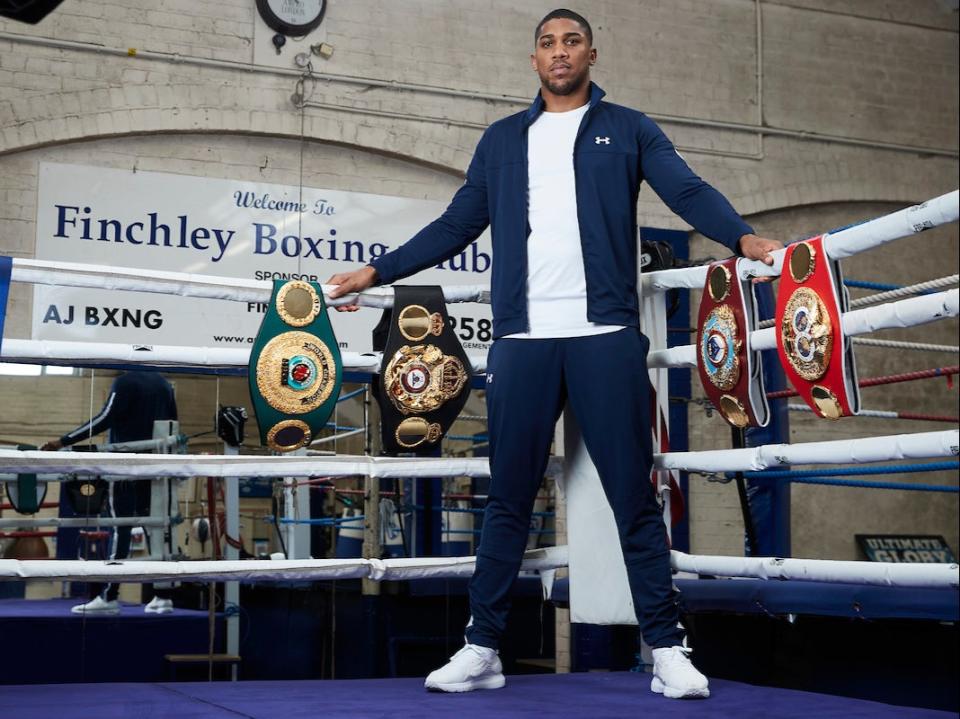Why Anthony Joshua has stepped in to help save grassroots boxing

Anthony Joshua believes boxing spared him from jail and he has now made moves to ensure more lives are changed by the sport that saved his.
Amateur boxing has been devastated by the Covid-19 pandemic and unified heavyweight champion Joshua has responded by providing “substantial financial backing” to the Amateur National boxing federations of England, Wales and Scotland.
This is understood to be in the form of a six-figure sum which will be distributed to, in Joshua's words, “grassroots clubs who really need it”. Meanwhile, Finchley ABC, where a teenage Joshua cut his teeth, has received more direct support from their most famous graduate.
READ MORE: Joshua dismantles Pulev to set up dream fight with Fury
Sitting on one of the benches inside his old club, which is just down the road from where he grew up in Golders Green, Joshua explained why he feels the government can do more to support the sport to which he owes his life.

Anthony Joshua poses with his world titles at Finchley ABC
Mark Robinson“I know the importance of boxing in the community,” Joshua says. “I know the importance of boxing for the nation. I know the importance of boxing for the economy. I know the importance of boxing for so many other reasons.
“I've just come off my fight with [Kubrat] Pulev last week, it’s back to reality now. All that hoo-rah and all that dancing and singing about Pulev is over. It’s back to reality and when I come and speak to the bosses at Finchley and I look at boxing there is a big issue. You know the support from the people in power is overlooked sometimes.”
Joshua's words are in reference to the government's announcement that 11 sports affected by the pandemic will receive a combined total of £300m in funding. Boxing, however, is not among the chosen few.
“Hopefully we can raise some eyebrows in places of power to look at the sports which have missed out,” he adds. “Sports like wrestling, swimming, athletics and let’s include boxing in that list.
“I definitely think boxing gyms will go under. It’s interesting because I feel professional boxing has found a way to survive and that’s brilliant. But without the amateur system, the grassroots clubs, there are no Olympians and without them there are no world champions in the country.
“Boxing produces some of the best athletes this country has ever seen. If me and Tyson Fury fight, which I’m sure is going to happen, it’s going to be one of the biggest sporting events in this country since the World Cup in 1966.
“Right now I’m in the grassroots gym which made me and it’s struggling. There was £300million given to sport and in grassroots sport... but £3,000 would make a difference.”

‘Right now I’m in the grassroots gym which made me and it’s struggling’
Mark RobinsonIt was 2008 when Joshua first set foot in Finchley ABC, when he tagged along with his cousin Benga. He moved swiftly through the ranks and was an Olympic champion within four years. Now 12 years on he is a two-time world champion and multi-millionaire. But it could have been so different if the club was forced to shut due to a lack of income, for example.
“If Finchley had closed its doors when I had just started boxing I would probably have ended up doing time,” Joshua says.
“I remember getting kicked off the Olympic squad in 2011 and I gave up on boxing. I started going back to my local area, I started smoking again. And it was my coach Sean [Murphy] who stopped that. He rang my mum and said 'where's your son? He's messing around. Get him back to the gym'.
"That shows how important it is not just to have the gyms open, but to have access to people from an older generation who can give me a sense of wisdom, a sense of belonging and guidance. That’s also important.
“You can speak to any world champions who have been role models, Vitali Klitschko has become a politician in the Ukraine, Manny Pacquiao in the Philippines.
“They go on and do great things and it all stems from grassroots sport. I’m in Finchley now, the place that made me. There’s a big connection here.
“There are so many things I want to attach my name to, but there are only so many I can do. But as boxing is something close to me I feel it is natural for me and I want to raise awareness.
“This is the conversation we’re having, people in power, it’s going to take someone like me to start the conversation that it’s important to put funding into sport and boxing.”

 Yahoo News
Yahoo News 
